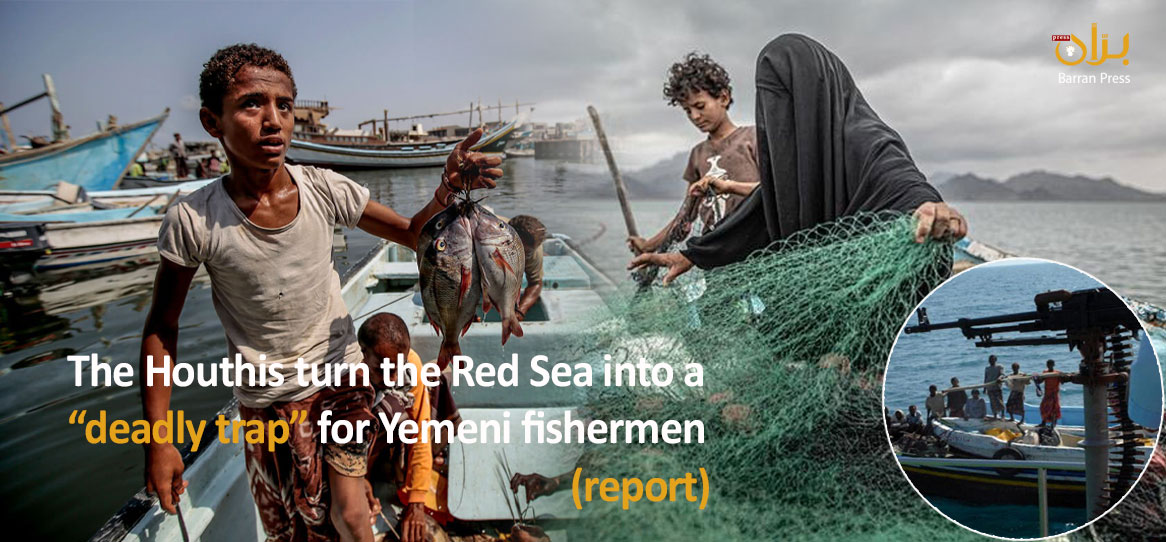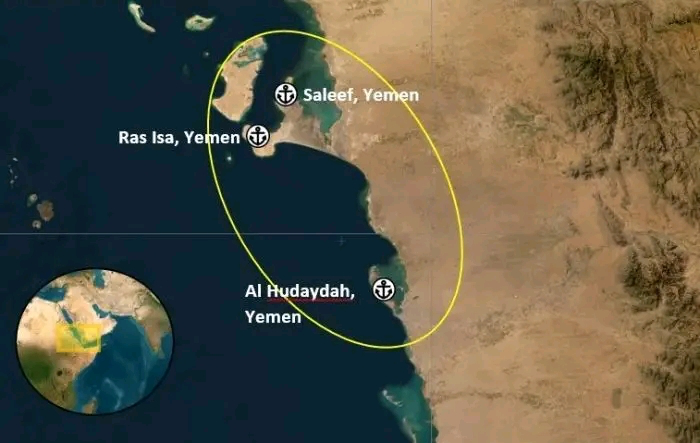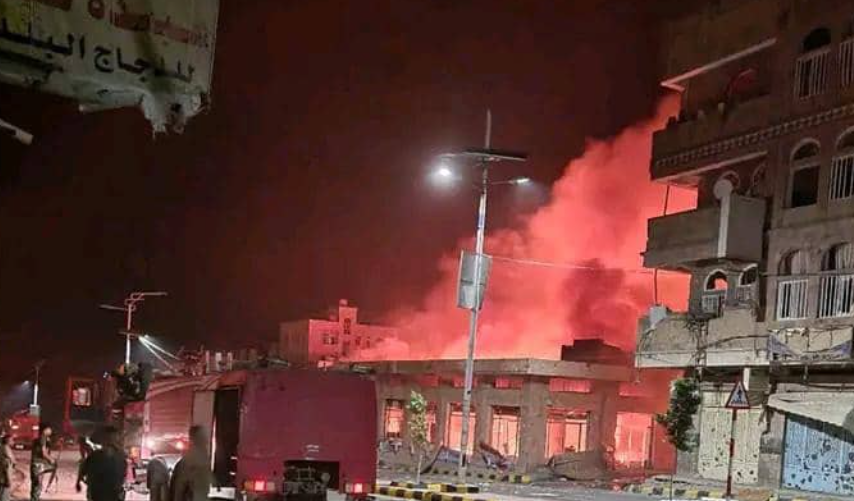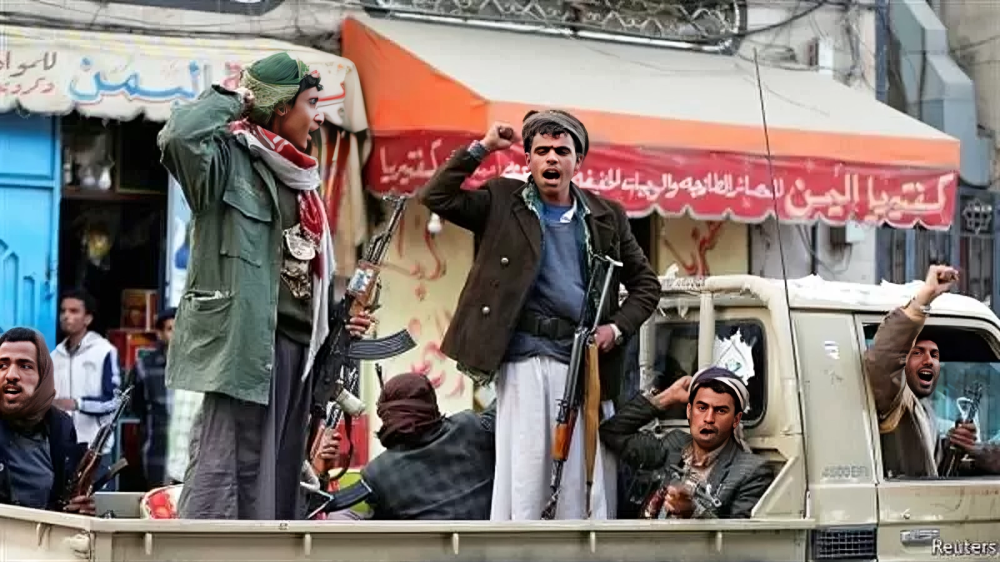
A Barran Press Special Report by Suhail Al-Sharhi
On January 25, 2024, the bodies of eight fishermen were found off the coast of Hodeidah, Yemen, after they had been missing for days. The fishermen had left the shores of Al-Khokha on December 19, 2023, for a fishing trip before being found dead near the Zu Harab islands in the Red Sea.
Sources at the fishing landing centers revealed a shocking detail: the bodies bore signs of gunshot wounds.
The victims were identified as Ibrahim Ali Mahnish, Zakaria Muhammad Dawoud Mansoub, Qasim Hammadi, Ibrahim Abd Al-Salam Bu, Hamza Abd Al-Hafiz, Anwar Fattini Hattab, Majid Ali Salem Behaider, and Ahmed Ali Shaif, according to local media.
A Deadly Catch
While the circumstances of the incident and the responsible party remain unclear, the Houthis, designated as a terrorist organization by several countries, swiftly blamed unidentified "international forces" for the "deliberate" killing of the eight Yemeni fishermen.
This incident is not an isolated case. It follows a string of similar tragedies that have claimed the lives of dozens of Yemeni fishermen in the Red Sea over the past months.
In March 2024, local sources reported casualties and missing persons from Hodeidah after an airstrike targeted two fishing boats in the Red Sea. In May 2024, a fisherman from Al-Khokha, Hodeidah, was severely injured after being shot while fishing in the Red Sea.
The perpetrators of these crimes remain unidentified, but they highlight the perilous situation faced by Yemeni fishermen who rely on fishing as their primary source of income and survival.
While the Houthis accuse international forces, fishermen and local sources point fingers at the group itself, accusing them of planting explosives in fishing nets and using Yemeni fishermen as human shields for their offensive operations in the Red Sea. This, they argue, is done with disregard for the fate of thousands of Yemenis who depend on fishing to combat the famine gripping the Tihama region.
Doubling the Dangers
The dangers faced by Yemeni fishermen have escalated to alarming levels with the Houthis launching naval attacks against commercial ships in the Red Sea and the formation of an international counter-coalition led by Washington to confront them.
Adding to the challenges faced by fishermen since the Houthis seized control of the coastal province of Hodeidah in late 2014, following their takeover of the Yemeni capital Sana'a and their coup against the legitimate government, they have deployed hundreds of naval mines of various sizes and types along the coasts and in the territorial waters. This has created a hazardous environment for fishing.
In addition to the mines, the Houthis have converted maritime sectors, islands, coastlines, and fishing landing centers into military sites, depriving thousands of fishermen of their livelihoods and the means to support their families, according to local sources.
Simultaneously with the ongoing war, numerous direct attacks on Yemeni fishermen have been recorded by military forces stationed near Yemeni waters, most notably Eritrean forces. These forces have detained dozens of Yemeni fishermen and subjected them to horrific physical and psychological torture, according to testimonies from victims.
A Living Hell:
Ibrahim Ali, a fisherman from Al-Khokha, described to "Barran Press" the current situation as a living hell. He pointed to the Houthi attacks on commercial ships in the Red Sea and the subsequent regional and international responses as the catalyst for the fishermen's plight.
“Fishing has become a dangerous and potentially deadly profession,” Ali said. “The Red Sea waters have become a battleground, and we are caught in the crossfire.”
Ali explained that many fishermen have stopped fishing altogether out of fear for their lives. He emphasized the importance of fishing to the coastal communities, saying, “It's our livelihood, and now it's under threat.”
Strangers in Their Own Waters:
Hussain Sadeq, another fisherman from the western coast, echoed Ali's sentiments. He described the fishermen as strangers in their own waters.
“We can’t move freely to fish because of the Houthi attacks and the counterattacks,” Sadeq said.
He highlighted to "Barran Press" the danger posed by the Houthis using fishing boats for attacks against international vessels. This has made Yemeni fishing boats vulnerable to attacks, as they are seen as potential threats by passing ships.
“We can only fish at certain times and in specific locations,” Sadeq said. “Even then, it's incredibly dangerous.”
Despite the risks, Sadeq and other fishermen have no choice but to risk their lives to feed their families.
Restrictions and Displacement:
The Houthis have further tightened the noose on the fishermen by issuing orders prohibiting them from approaching several islands that have been converted into military sites.
The Houthis have also banned fishing along the shores of Al-Luhayyah, north of Hodeidah, and around six other Yemeni islands. This has severely restricted the fishermen's movements and livelihoods.
“The Houthis' decision has intensified our suffering,” Sadeq said. “We have no other means to provide for our families.”
Many fishermen living in Houthi-controlled areas have been forced to flee to government-controlled regions in search of fishing grounds, even though the catch is meager.
A Bleak Future:
Masoud Masawa, the director of the Al-Khokha Fishing Landing Center, confirmed the Houthi order banning fishermen from approaching certain islands. He emphasized the devastating impact on the lives of many fishermen.
“Fishing is the only way for coastal communities to survive,” Masawa said. “Today, fishing is fraught with danger, death, and suffering.”
The plight of the Yemeni fishermen paints a stark picture of the human cost of the ongoing conflict in the Red Sea. They are caught in a web of violence, restrictions, and fear, with their livelihoods and lives hanging in the balance.
Death Trio
The residents of Hodeidah Governorate, already facing the direst poverty in Yemen, are now grappling with a deepening crisis fueled by the ongoing war. The situation has reached a point of "famine," with deadly diseases and shrinking livelihoods adding to the suffering. This triple threat has left the people of Tihama vulnerable, with little support from state authorities or effective humanitarian aid.
The Houthi militia's attacks on commercial vessels in the Red Sea have dealt a devastating blow to the local economy, particularly the fishing industry. Official statistics reveal that approximately 60% of fishermen have lost their jobs and sources of income, leaving many families struggling to survive. The attacks have also disrupted most fish landing centers in the governorate.
Muammar Al-Eryani, Minister of Information in the internationally recognized Yemeni government, paints a stark picture of the situation: "300,000 people work in the fishing profession, on board 33,000 boats, and support approximately 2,000,000 in Hodeidah Governorate, have lost their jobs and sources of livelihood due to the militarization of the Red Sea."
Since last November, the Houthis, designated as a terrorist group by several countries, have escalated their attacks on commercial shipping vessels in the Red Sea, the Arabian Sea, and the Gulf of Aden, using missiles and drones. These attacks have driven up maritime insurance costs, forcing many international shipping companies to choose the much longer route around the southern tip of Africa.
In an attempt to deter the Houthis and protect maritime traffic, the United States formed a multinational coalition in December 2023. US forces have also been conducting strikes against Houthi military targets.
Since January 12th, the US and UK have carried out approximately 560 airstrikes against the Houthis, resulting in the deaths of 58 Houthi fighters and injuries to 86 others, according to the militia's own admission.
However, the Yemeni government argues that Western airstrikes are insufficient to neutralize the Houthi threat to shipping. They advocate for supporting their armed forces to reclaim Hodeidah, its ports, and other areas under Houthi control.
Despite the group's continued claims of naval attacks, only three out of 162 ships they claim to have targeted since November 2023 have suffered significant damage or casualties.





